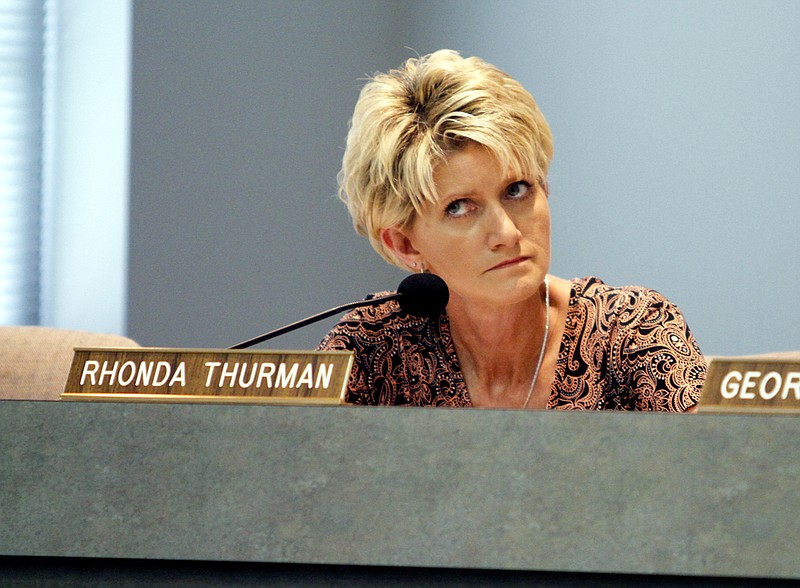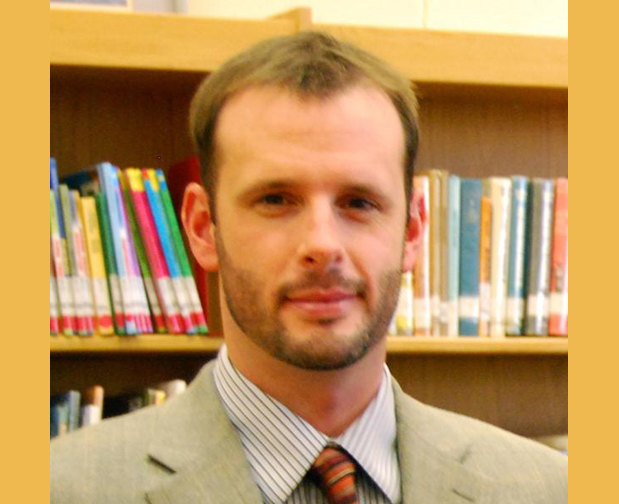"I thought I'd be a part of this team," Smith told the board, as he sat beside Bill Kilbride, president and CEO of the Chattanooga Area Chamber of Commerce, and Jared Bigham, director of Chattanooga 2.0.
For the next hour, the three men talked with the school board about the findings of a Chattanooga 2.0 report released Sunday that gives a sobering picture of local public schools and the failure to produce graduates qualified to hold the jobs coming to Hamilton County.
According to the report, only 35 percent of local public school graduates earn any postsecondary credentials after high school, barring them from 83 percent of the jobs in the county paying a livable wage of $35,000 and require some type of certification or degree.
Kilbride told the board how hard it has been to help businesses find qualified employees, making it "abundantly clear to us that the skills of high school graduates need more work."
He said if the problem is not addressed, Hamilton County runs the risk of losing all the economic progress it has made over the past couple decades.
Bigham said the future of Hamilton County's economy depends on people coming together to develop solutions to better prepare residents to fill the increasing number of well-paying jobs arriving in the county.
"Education isn't the silver bullet," Bigham said. "But it's a piece of the silver buckshot that's going to be a part of this [Chattanooga 2.0] strategy moving forward."
Board members' reactions varied during Thursday night's meeting.
School board Chairman Jonathan Welch asked the board to do more than just discuss Chattanooga 2.0 in upcoming months, but to take action in helping develop and implement solutions to improve schools.
"We've graduated a lot of kids not able to go to college or get a job," Welch said. "And that falls squarely on us."
School board member George Ricks said the information in the report is nothing new, but it isn't just the school system's fault.
"We're all involved," Ricks said.
Ricks' district contains Brainerd High School, which is mentioned in the report because only 9 percent of its graduates earn postsecondary credentials within six years of leaving high school. Ricks said it is time schools become more socio-economically diverse because students living in poverty are all being lumped together into the same schools, affecting their education and opportunities.
"The ones who can afford to send their kids [to school] out of the community are doing it," Ricks said. "We siphon out the best [students] and then we leave the rest."
Steve Highlander, a board member and long-time educator, said schools should stop educating every student as if they are going to college and offer more vocational programs that will prepare them for jobs after graduation.
School board member Rhonda Thurman said the board is responsible for the findings in the report.
"A lot of the problems we created," Thurman said. " we can fix this, if people are bold enough to fix this. I just don't know if we're bold enough."
Conversation regarding Chattanooga 2.0 is expected to continue at next month's meeting.
Also during Thursday night's meeting, the board voted to give the superintendent the responsibility of accepting county commissioner's discretionary funds.
"I don't like being pulled into this fight with the discretionary money, I wish it would all go away," Thurman said before the vote. "I don't want it to look like I'm picking one school over another."
Thurman's comments follow a week of debate about how county commissioner's should spend their discretionary funds. In last week's school board work session, Welch questioned why the school board was asked by the County Commission to formally vote and accept these donations if the board is not given a say in how or where the money is spent.
Commissioners defended their right to distribute the money however they please in Wednesday's commission meeting.
School board member Donna Horn defended County Commissioner Sabrena Smedley's decision to spend an additional $34,000 of taxpayer dollars from her discretionary bond fund to build new bathrooms at East Hamilton Middle High School.
Horn was not at last week's work session when the topic was originally discussed and said Thursday night if she had known this issue would have discussed, she would have been present. She said using discretionary money to build bathrooms by the football stadium, replacing the existing portable toilets, will benefit many in the community.
But Thurman disagreed, saying, "You're talking about bathrooms [at East Hamilton] while Sale Creek doesn't even have a football field. Sorry, you don't have bathrooms, we haven't had bathrooms at the middle school for years."
Thurman said she was uncomfortable with the school board being a part of "jockeying for votes," saying discretionary money "turns us all into w---" trying to get some of the money.
The decision to give Smith the responsibility to accept discretionary funds frees the board up from having to formally approve where the money is spent, which Welch previously said is a good thing since he doesn't want it to look like the board is prioritizing the needs of certain schools.
Smith will report to the board when discretionary funds are accepted, and the board will be notified if he plans to reject any of these funds from commissioner's.
As this discussion concluded, Welch struck the gavel and reminded the board its priorities should be on improving instruction.
"We're talking about bathrooms," he said. "But we've got kids [in our schools] that can't even read."
Contact staff writer Kendi Anderson at kendi.anderson@timesfreepress.com or 423-757-6592.

